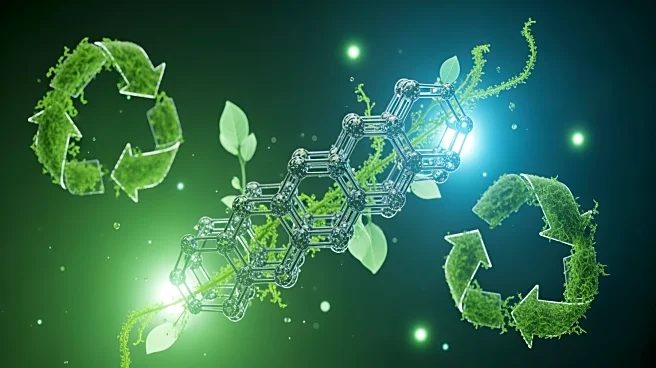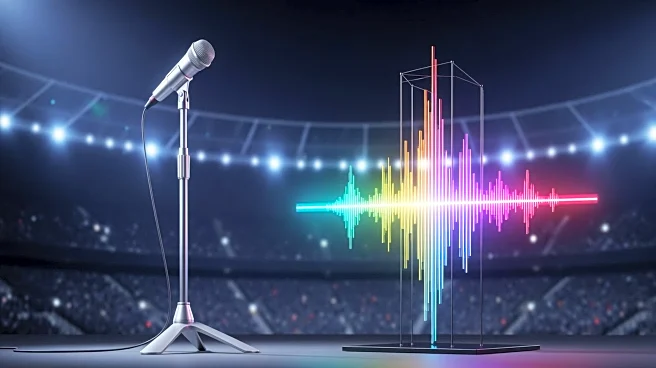What's Happening?
FutureBio, a company based in Berkeley, is addressing the global plastic pollution crisis by developing a new type of plastic that is both durable and bio-renewable. Unlike traditional petroleum-based
plastics, which constitute over 99% of plastics and are largely non-recyclable, FutureBio's innovation aims to be more sustainable and easier to recycle. The company employs a chemical recycling process that breaks down plastics into their original monomers, allowing for high recycling rates and reduced environmental impact. This development comes amid increasing scrutiny of traditional plastics, highlighted by a lawsuit from California's attorney general against ExxonMobil for allegedly misleading consumers about the recyclability of plastics.
Why It's Important?
The introduction of a new, more sustainable plastic by FutureBio could significantly impact the U.S. and global efforts to reduce plastic waste. With only about 9% of plastics currently being recycled, this innovation could enhance recycling rates and reduce the environmental footprint of plastic products. The company's approach aligns with growing environmental regulations and consumer demand for sustainable products. If successful, this could lead to a shift in the plastics industry, encouraging other companies to adopt similar technologies and potentially reducing reliance on petroleum-based plastics.
What's Next?
FutureBio plans to bring its new plastic to market within the next two to three years. The company is currently working on developing durable plastic products for applications such as furniture and tools. As the company progresses, it will need to navigate the challenges of scaling production and ensuring profitability in a market influenced by fluctuating government policies and investment climates. The success of FutureBio's product could inspire further innovation and investment in sustainable materials, contributing to a broader transition towards a circular economy.
Beyond the Headlines
The development of a new type of plastic by FutureBio also raises questions about the future of the plastics industry and its environmental responsibilities. As awareness of plastic pollution grows, there is increasing pressure on companies to innovate and reduce their environmental impact. This could lead to more stringent regulations and a shift in consumer preferences towards sustainable products. Additionally, the success of FutureBio's technology could set a precedent for other industries to follow, potentially leading to broader changes in manufacturing and waste management practices.









